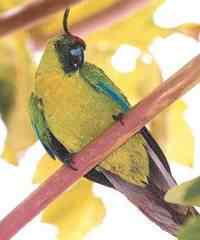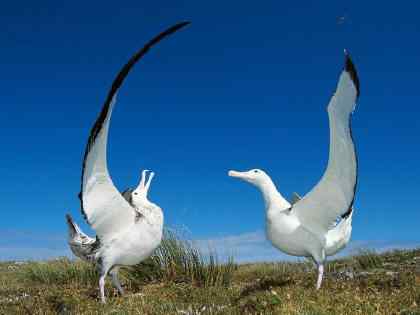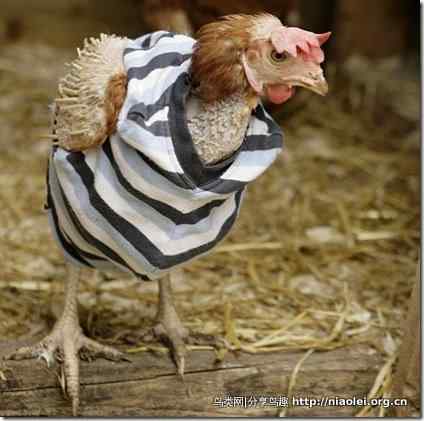鱼与海鸟,两者兼得
国际鸟盟与英国皇家鸟类保护协会在巴西的一个渔业配额会议上,提出注意海鸟误获的问题,倡议保护信天翁等海鸟,令大西洋和地中海的海鸟免受威胁。
http://www.birdlife.org/news/news/2009/11/iccat_albatross.html[/url]
Making Atlantic and Mediterranean fisheries seabird friendly
09-11-2009
As scientists gather today in Recife, in Brazil, to agree on quotas for the Atlantic and Mediterranean stocks of tuna and swordfish in the latest round of fisheries talks, BirdLife International and the RSPB (BirdLife in the UK) are reminding delegates that at least 37 species of seabird are at risk from these fisheries. Indeed, 18 of these species are albatrosses facing extinction. Getting caught in fishing gear is the greatest single threat that some of these seabirds face.
BirdLife International and the RSPB hope that talks - organised by the International Commission for the Conservation of Atlantic Tunas (ICCAT) - will agree measures to prevent the deaths of these seabirds in the Mediterranean and Atlantic. In tuna and swordfish fisheries, albatrosses and other seabirds die on the end of longline hooks in unsustainable numbers and, for many species, this is their greatest extinction threat.
Dr Cleo Small, International Marine Policy Officer for BirdLife’s Global Seabirds Programme is attending the Recife meeting to try to secure a better future for Atlantic seabirds, especially albatrosses.
“The populations of albatrosses are declining faster in the South Atlantic than any other ocean. For example, the Wandering Albatross [Diomedea exulans; Vulnerable] – possessing the largest wingspan of any bird – is rapidly declining on South Georgia, and links have been made between these declining populations and longline fishing within the ICCAT fishery. This situation is needless, because the technology exists to prevent these deaths", said Dr Small.
“We will be urging delegates to approve rules that make it mandatory for all vessels fishing for tuna and swordfish in the Atlantic to abide by simple measures which lower the risk of albatrosses and other seabirds dying in these fisheries.”
Dr Small added: “The main problem is that albatrosses try to steal fish and squid bait from longline fishing hooks. The birds get caught on the hook and quickly drown when the lines are set. The corpses of these birds, recovered hours later, are a grim reminder of the sheer toll of seabirds that these fisheries can take.”
“The populations of albatrosses are declining faster in the South Atlantic than any other ocean” —Dr Cleo Small, International Marine Policy Officer for BirdLife’s Global Seabirds Programme
Some of the most at risk species include the Balearic Shearwater Puffinus mauretanicus of European waters and the Tristan Albatross Diomedea dabbenena of the South Atlantic. Both species, which are listed as Critically Endangered by BirdLife on behalf of the IUCN, are important to the UK. The Balearic shearwater, which nests on the Balearic Islands of the Mediterranean, is a regular non-breeding visitor to the waters off southern Britain, while the Tristan albatross only nests on Gough Island, part of the UK Overseas Territory of Tristan da Cunha.
Eight of the top ten seabird species considered to be most at risk from Atlantic longline fisheries nest on the three UK Overseas Territories in the South Atlantic: the Falkland Islands; Tristan da Cunha and South Georgia. The top six most at risk seabird species in the Atlantic are albatrosses.
The RSPB is a Partner in BirdLife's GSP which works around the globe to conserve seabirds, and is striving to ensure that relevant international agreements are implemented that will benefit both the birds and the legal fishing industry.
The GSP also work hard to promote simple and inexpensive mitigation measures, which are highly successful in reducing seabird bycatch. The Programme achieves this through the Albatross Task Force (ATF) - the world’s first team of dedicated instructors to demonstrate the correct use of mitigation measures to fishermen, and to develop and test new measures.
“Dying at a rate of around one every five minutes, the albatross family is becoming threatened faster than any other family of birds”
“The Albatross Task Force began in 2006 and it’s already having huge success around the globe, but we need more help”, said Dr Small.
A variety of mitigation measures are available to prevent the deaths of albatrosses and other seabirds. One of the most popular is the tori, or streamer, line. Using this technique, fishing crews pay out lines of streamers from the stern of a vessel. Effectively, these streamers create a curtain, deterring albatrosses from coming too close to the danger zone, just off the stern of the vessel.
Mitigation measures have been used to great effect in some of the world’s other fisheries. In sub-Antarctic waters – operating in the Convention for the Conservation of Antarctic Marine Living Resources fisheries region – mitigation measures have reduced seabird bycatch from thousands of birds a year to effectively zero. Additionally, fantastic reductions in seabird bycatch have been secured within the foreign tuna longline fleet, operating in South African waters. Since 2006, this fishery has cut seabird bycatch by 85 per cent.
There are many different ways you can support BirdLife’s Albatross Task Force. From giving a regular donation, to buying a fluffy albatross or requesting a set of albatross postcards, every action will help in our fight to prevent albatrosses from becoming extinct
hf cheung 2009-11-10 17:32
海洋生态(特別是鱼类)的捕猎及保护间的冲突恐怕只會更为严重,似乎需要在概念上有重大突破。
Simba 2009-11-10 23:26
[quote]原帖由 hf cheung[/i] 于 2009-11-10 17:32 发表 [url=http://www.chinabirdnet.org/BBS/redirect.php?goto=findpost&pid=8803&ptid=1502]
近年来开始令人担忧的是这股吃生鱼片和寿司的风气已经传遍亚洲,要是大陆先富起来的人也开始吃,因为人口的基数大,问题就会更严重。... [/quote]













发表评论:
◎欢迎参与讨论,请在这里发表您的提问或看法,交流您的观点。